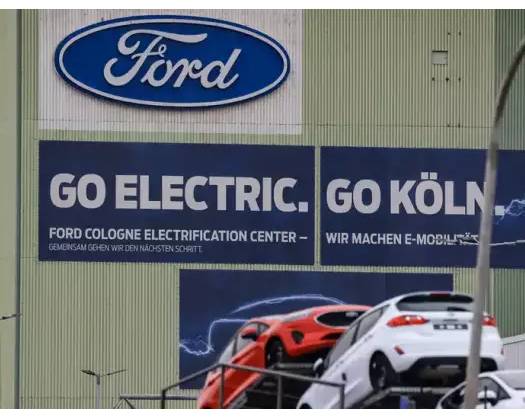Ford, the leading automotive manufacturer in the United States, has announced plans to reduce its workforce by 4,000 positions across Europe by the year 2027, attributing this decision to substantial financial losses in recent times.
The company disclosed on Wednesday that it intends to implement a 14% reduction in its European workforce, with a projected 2,900 job eliminations expected in Germany by the year's end. Additionally, it plans to shed 800 jobs in the United Kingdom and 300 positions in other European countries.
Regarding the rationale behind these job cuts, Ford stated, "Europe's automotive sector is currently confronted with significant competitive and economic challenges, compounded by a mismatch between CO2 emissions regulations and the consumer demand for electric vehicles."
David Johnston, Ford's European Vice President for Transformation and Partnerships, emphasized the necessity of "taking bold yet decisive measures to secure Ford's competitive edge in Europe."
Furthermore, the company intends to reduce the working hours of its employees at the Cologne, Germany, plant, which is home to approximately 11,500 workers, and decrease the production of the Capri and Explorer electric vehicles manufactured there.
Ford has indicated that the job cuts, expected to eliminate one in four positions at the Cologne plant, will be conducted in collaboration with labor representatives.
The company also noted that the European automotive industry is currently navigating through a period of significant disruption, as it transitions towards electrified mobility. This shift is further complicated by the potential for billions in fines from the European Union for non-compliance with new carbon emissions regulations, which are set to be implemented next year. Additionally, the push towards electric vehicle sales is being hindered by competition from China, where a diverse array of car manufacturers can offer electric vehicles at lower prices.
Moreover, the German government reduced subsidies for electric vehicles in December of the previous year to meet budgetary constraints. Analysts have observed a sales decline of 28.6% for electric vehicles in Germany during the first nine months of this year.








